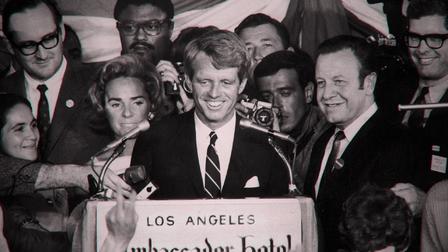(THIS ARTICLE IS MACHINE TRANSLATED by Google from Norwegian)
June 8
And this is all well and good. But we are constantly amazed that this disgust never turns against American society. On the contrary, the press has applauded throughout the years when this United States, with its ideals and economic system, should be applied to other people – if necessary by force. It has talked about freedom and democracy. But behind the varnish of democracy, there are huge concentrations of power and contradictions hidden between the powerful and the powerless. We have heard less about that. The gangway in Lebanon, the invasions in Guatemala and San Domingo, the attacks on Cuba and Vietnam, were always explained by the fact that it was in the interest of freedom and democracy. The status quo, the unbearable economic and social conditions in Asia, Latin America and the United States itself, is also violence. But the poverty of these continents also forms the basis for the wealth of the West. An economic powerhouse with hundreds of thousands of soldiers, planes and tanks holds them down in the abusive name of anti-communism.
In other words, American society, its political power and economic structure, is based on violence – and to an extent that is only now beginning to open up to the world. And one still marvels that there are private acts of violence in this society where the violence has been institutionalized and idealized for generations. President Johnson, for his part, has set up a committee to analyze the causes of the increasing rate of violence in the United States. We must create a new attitude, said the President. But can such a committee abolish the contradictions in American society? Is the US crisis today a question of attitudes or is it a question of the contradictions and the society that creates these attitudes?
 It is becoming increasingly clear that it is the United States itself that has something to do with it – a society in which Lloyds will soon not dare assure politicians in line with or to the left of Gunnar Garbo. We no longer believe in a president who can overwhelm the nation with crocodile tears over one person's life, while at the same time bearing the responsibility for the murder of tens of thousands of poor Asians.
It is becoming increasingly clear that it is the United States itself that has something to do with it – a society in which Lloyds will soon not dare assure politicians in line with or to the left of Gunnar Garbo. We no longer believe in a president who can overwhelm the nation with crocodile tears over one person's life, while at the same time bearing the responsibility for the murder of tens of thousands of poor Asians.
Led by the Major in Morgenbladet and stimulated by the roar of sub-officers of the World Gang, our domestic press has set up a campaign against "left-wing fascism" and what it calls the glorification of violence on the left. But who is using violence? Where can you find the mentality of violence? What do the names list John F. Kennedy, Rudi Dutschke, Martin Luther King, and now Robert Kennedy tell us? We think these names as well as tens of thousands of nameless Vietnamese say enough about where the shots come from.
A world is listening in sadness to the message of Robert Kennedy's death, and there is reason to mourn. But there is also reason to react to a mood that manifests itself in VG's and President Johnson's humanity ideal: nothing is as valuable as one human life, nothing is more indifferent than tens of thousands of human lives.
We can mourn with the mourners, but we also cannot fail to see the assassination of Robert Kennedy in his full and deeply serious political context.
MODERN TIMES draws attention to the documentary series
which is currently being sent on Netflix about Robert Kennedy.



